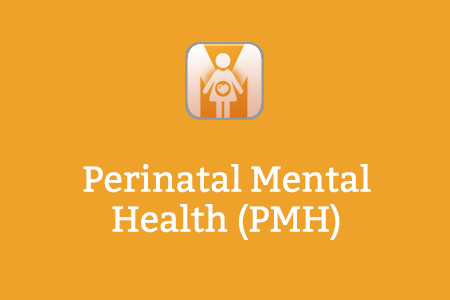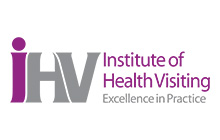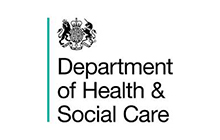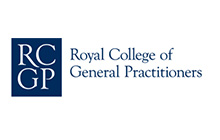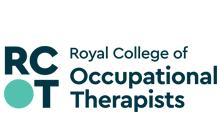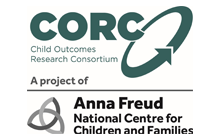About the Perinatal Mental Health programme
The Perinatal Mental Health programme has been designed to help educate and develop the workforce caring for people with perinatal mental health issues.
This programme currently provides courses across four key areas:
- Perinatal Mental Health
- Perinatal Mental Health for Health Visitors
- Perinatal Mental Health for Occupational Therapists
- Perinatal Parent and Infant Mental Health
- Routine Outcome Monitoring in Specialist Perinatal Mental Health Services
- Perinatal Mental Health Birth Trauma
Perinatal Mental Health Birth Trauma (new)
The overall aim of the elearning course is make professionals involved in perinatal care aware that studies indicate that as many as one in three birthing people found some aspect of the birth of their baby psychologically traumatic. The three learning modules build on a trauma informed approach to further explore birth trauma specifically.
Session 1 Introduction and definition of birth trauma
Describes what birth trauma is and better identify some of the risks that can make people more vulnerable to experiencing it.
Session 2 Symptoms of birth trauma and postnatal PTSD
Identifies birth trauma, in the context of families and relationships, and start to identify possible support.
Session 3 Different assessment tools available to screen for birth trauma
Describes evidence-based tools and scales that screen for trauma and describe a number of supportive options for psychological interventions.
Perinatal and Infant Mental Health
The overall aim of the elearning course is to offer learners an overview of the field of Perinatal and Infant Mental Health and why the perinatal period is unique and important in terms of parent and infant’s lives, development, relationships, mental health and well-being and outcomes for families.
The objectives of the course are to offer learners an overview of Perinatal and Infant Mental Health via delivery of 12 short modules/sessions which cover 3 key, broad sections relating to Perinatal and Parent Infant Mental Health. Objectives will be achieved via delivery across 3 broad sections.
- why perinatal and infant mental health matters
- the context and stages of the developing family (pregnancy journey, transition to parenthood, infant development, parent-infant relationships and trauma in the perinatal period)
- the work of perinatal and infant mental health services (framework for good practice, managing risk/safeguarding, supporting perinatal mental health difficulties via offer of therapy and medication and supporting parent-infant relationships).
To access please visit Perinatal and Infant Mental Health
-
Section 1: Why are Perinatal and Infant Mental Health services needed?
Section 1: Why are Perinatal and Infant Mental Health services needed?
1.1 Perinatal and infant mental health: why it matters
This session takes a look at the perinatal period and why it is unique and important in terms of outcomes for families. It also explains how and why perinatal mental health services have evolved within England.
-
Section 2: The context of the developing family
Section 2: The context of the developing family
2.1 The journey of pregnancy and maternity care
This session gives an overview of the physiological processes associated with pregnancy and childbirth, and the journey through the maternity system.
2.2 Transition to parenthood
This session provides a sense of the breadth of experiences that parents might have in their transition to parenthood and the importance of keeping this context in mind when assessing the family’s needs.
2.3 Infant development
This session looks at infant development during pregnancy and into the first 1001 days of life. It will provide practitioners with a framework for understanding what an infant might need and want at different developmental stages and what support parents might need to provide this.
2.4 Parent infant relationships
This session introduces the importance of the parent infant relationship. It explores why early relationships are important for babies’ development and the key aspects of a parent infant relationship, taking into consideration what might interfere with these processes.
2.5 Trauma in the perinatal context
This session introduces the impact of trauma in the perinatal period. It will support professionals to identify and respond more sensitively to families who have experienced trauma.
-
Section 3: The work of perinatal and infant-parent mental health services
Section 3: The work of perinatal and infant-parent mental health services
3.1 Working with families in the perinatal period: a framework for good practice
This session provides a framework of good clinical practice for those working with individuals and families in the perinatal period. It explains the importance of trauma informed care and considers how professionals can adopt a “perinatal and parent-infant frame of mind” when working with families.
3.2 Risk assessment and safeguarding in the perinatal period
This session outlines the reasons that professionals need to be particularly aware of risk in the perinatal period, and some of the key perinatal and infant considerations when assessing risk.
3.3 Assessment and management of perinatal mental health difficulties
This session outlines how professionals can recognise perinatal mental health difficulties, understand associated risks, and develop a collaborative treatment plan with the mother or birthing person, family and wider support services.
3.4 Prescribing of psychotropics in pregnancy and breastfeeding
This session explores the evidence around psychotropics in pregnancy and breastfeeding, as part of a holistic management plan. It provides an overview of prescribing mental health medication during pregnancy and breastfeeding, assisting professionals and parents to make collaborative evidenced-based decisions.
3.5 Delivering psychological therapy in the perinatal period
This session explores ways to hold the perinatal and infant frame of mind whilst delivering psychological therapy with parents. It outlines common presentations in the perinatal period and examines frameworks for offering perinatally-informed support.
3.6 Supporting parent infant relationships
This session examines assessment and support in the parent infant relationship. It focuses on how to recognise concerns early and how to support change.
Routine Outcome Monitoring in Specialist Perinatal Mental Health Services
Specialist Perinatal Mental Health Services (SPMHS) provide support to service users with moderate to severe mental health difficulties in the antenatal and postnatal period. This elearning is adapted from a manual produced by the Child Outcomes Research Consortium – a project of the Anna Freud Centre – and offers tools, tips and information to help in implementing routine outcome measurement (ROM) in SPMHS and maternity settings.
The aim of this programme is to provide a helpful framework and useful suggestions for services in how to implement measures. Each service is unique and decisions around how best to implement measures should be made locally, while still being informed by best practice.
Session 1 An introduction to Routine Outcome Monitoring (ROMS)
Session 2 System enablers for implementation of ROMS
Session 3 Using patient reported outcome measures
Session 4 Consideration of other measurement tools and approaches
Session 5 Analysing reporting interpreting aggregated ROM data
To access please visit Routine Outcome Monitoring in Specialist Perinatal Mental Health Services
Acknowledgements
The team responsible for creating this elearning would like to acknowledge the original authors of the Implementing routine outcome monitoring in specialist perinatal mental health services manual:
- Sally Marriot
- Michelle Sleed
- Kate Dalzell
We would also like to thank Dr Giles Berrisford. National speciality Advisor for Perinatal Mental Health for NHS England.
Perinatal Mental Health
This course is designed to provide high quality and evidence-based elearning resources in the field of perinatal mental health.
NHS England has developed a set of five elearning sessions, each taking around 20 to 30 minutes to complete. The sessions assume no specific prior knowledge of perinatal mental healthcare and are designed to be accessed by any health care professional who has contact with people in the time when they’re considering pregnancy, right up until their child is around 1 year old.
All content is referenced, and the learner is signposted to additional detailed learning resources for more advanced learning. The content and structure of the sessions were formally agreed working with subject matters experts across the field.
The sessions commence with 2 introductory sessions, which provide a broad overview of the topic and essential learning points for all health professionals. The 2 subsequent sessions focus on different stages of a mother’s journey – the pregnancy, birth and the first year of a child’s life. The subsequent sessions contain more detailed advice, which may be of interest to particular professional groups, for example, obstetricians choosing to complete session 4 on labour and the immediate post-partum.
- Introduction to Perinatal Mental Health 1
- Introduction to Perinatal Mental Health 2
- Perinatal Mental Health in the Antenatal Period
- Perinatal Mental Health in the Postnatal Period
Perinatal Mental Health for Health Visitors
The Health Visitor Implementation Plan contains core aims to “improve opportunities to use the full range of health visitor skills and re-emphasise health visitors as key public health professionals” and to “ensure a strong focus on responding to differential needs and improving outcomes, and that systems promote effective join-up between services in ways that best meet local needs.”
Training health visitors to identify and treat postnatal depression, including making referrals to specialist counselling, is a key driver of these aims.
The 2 elearning modules developed by the Institute of Health Visiting, in partnership with NHS England look at:
- Perinatal Mental Health: Health Visitor Assessment
- Perinatal Mental Health: Health Visitor Interventions
The resource is made up of expert peer reviewed content and videos, interactions and knowledge checks.
To access please visit Perinatal Mental Health for Health Visitors
Perinatal Mental Health for Occupational Therapists
Training programme for occupational therapists working in perinatal mental health services.
This elearning course is for occupational therapists working in perinatal mental health services and those who are new to or wishing to work in this specialist area of practice. Sessions may also be of interest to other professionals working in perinatal mental health and maternity services. It has been developed by the Royal College of Occupational Therapists in collaboration with NHS England elearning for healthcare.
The course provides occupational therapists with the information and skills they need to support women’s participation in activities that are important to them, their infants and families, and to facilitate women’s recovery from perinatal mental health problems.
It is recommended that you access the sessions on a laptop or desktop.
Each session includes information, case studies relating to the content of the session and a self-assessment to check participants’ knowledge and understanding. Links to additional information and resources are provided and participants are encouraged to create a ‘personal action plan’ detailing how they will continue their learning and develop their practice.
More information
The course content was written by a group of occupational therapy experts including clinicians, researchers, and individuals with lived experience of perinatal mental health problems. Case studies are based on real life examples and include assessment/intervention plans written by experienced occupational therapists for participants to compare with their own. The course was peer reviewed by a wider group of occupational therapists and checked for quality and consistency by the Royal College of Occupational Therapists’ practice and professional development teams.
To access please visit Perinatal Mental Health for Occupational Therapists
- Session 1: The Occupational Therapist and Perinatal Mental Health
- Session 2: Referrals and Information Gathering
- Session 3: Assessment Tools and Processes
- Session 4: Occupational Formulation and Goal Setting
- Session 5: Occupational Therapy Interventions in Perinatal Mental Health
- Session 6: Discharge and outcomes
- *New – Session 7: Perinatal mental health, physical health and disability
- *New – Session 8: Perinatal mental health: returning to work or study
- *New – Session 9: Perinatal mental health and neurodiversity
Perinatal Mental Health Competency Framework
NHS England commissioned the Tavistock and Portman NHS Foundation Trust to develop a skills competency framework for all staff working to support mothers and families across the perinatal care pathway, from preconception to postnatal care.
The framework is designed to increase general awareness of perinatal mental health disorders and associated care skills, supporting advanced and specialist practice. Competencies are the skills, knowledge and behaviours that deliver high quality care and enable the continuous improvement of services.
It has been developed to standardise competencies for perinatal mental health practice across England. This will help to ensure the workforce is confident and suitably skilled to identify need and deliver care to women who have mental health problems during the perinatal period, thereby increasing access to appropriate evidence-based specialist treatment.
This framework lists several competencies over separate domains and is divided into categories for different types of healthcare worker; including those who have limited infrequent contact, to those who work in specialist perinatal services. Over time, this competency framework may be used for recruitment, training and development, and discussions about career progression.
A review has been undertaken around usage of this framework. Further improvements will be made in due course to improve access.
To access please visit Perinatal Mental Health Competency Framework
Project team for Perinatal Mental Health

Cheryll Adams
Institute of Health Visiting
Dr Judy Shakespeare
Module Editor, Health Education England
Toni Turner
Senior Teaching Fellow Kings College London
Sylvia Woolley
Professional Development Officer Perinatal and Infant Mental Health
Project team for Perinatal Mental Health for Occupational Therapists

Dr Sally Payne
Professional Adviser, Royal College of Occupational Therapists
Leanne Davies
Specialist Occupational Therapist, Cheshire and Mersey Specialist Perinatal Service, Cheshire and Wirral Partnership NHS Foundation Trust
Sarah Maris-Shaw
Occupational Therapist, South London and Maudsley NHS Foundation Trust
Jo Brook
Perinatal Mental Health Training and Service Development Lead & London Perinatal Mental Health Network Coordinator, Tavistock and Portman NHS Foundation Trust
Mandy Graham
Occupational Therapy Senior Lecturer / Admissions Tutor, Leeds Beckett University
Clare Hooper
Clinical Specialist Occupational Therapist, Birmingham and Solihull Mental Health NHS Foundation Trust
Amy Doyle
Perinatal Occupational Therapist, Avon and Wiltshire Mental Health Partnership NHS Trust
Rachael Coates
Specialist Perinatal Occupational Therapist, Central and North West London NHS Foundation Trust
Anne Segalini
Professional Lead Advisor in Occupational Therapy, UK Ministry of Defence
Ben Harris
Specialist Paediatric Occupational Therapist, Guy’s and St Thomas’ NHS Foundation Trust
Bev Taylor
Stakeholder and Engagement Manager, Royal College of Occupational Therapists
Project Team for Perinatal Parent and Infant Mental Health

Rebecca Burgess-Dawson
National Specialist Education Advisor (Mental Health), WT&E, NHS England
Keith Reed
CEO, Parent Infant Foundation
Michela Biseo
Interim Clinical Advisor, Parent Infant Foundation
Karen Bateson
Head of Clinical Strategy and Development, Parent Infant Foundation
Ruth Butterworth
Consultant Clinical Psychologist
Lisa Marsland-Hall
Consultant Clinical Psychologist
Amy Headley
Infant Feeding Policy Lead, (Family Hubs & Start for Life Programme)
Janette Hiscoe
Project Officer, DEQ Quality Transformation, NHS England
Project team for Routine Outcome Monitoring in Specialist Perinatal Mental Health Services

Nick Tait
Programme Manager – CORC, Anna Freud Centre
Sally Marriott
Regional Officer - CORC, Anna Freud Centre
Rebecca Burgess-Dawson
National Clinical Lead (Mental Health), NHS England
Vanessa Cullen
Senior Project Manager, DEQ Quality Transformation, NHS England
Janette Hiscoe
Project Officer, DEQ Quality Transformation, NHS England
Acknowledgements
We would like to thank the following for contributing to the development of the Perinatal Mental Health Parent-Infant eLearning programme:
- NHS Greater Manchester Integrated Care (formerly Greater Manchester Health and Social Care Partnership)
- Dr Fatima Abu Amna, Consultant Obstetrician and Gynaecologist with special interest in perinatal mental health, Wrightington, Wigan and Leigh Foundation Trust
- Dr Jenny Atkinson, Clinical Psychologist and Clinical Lead for Perinatal and Parent Infant Mental Health in Bolton
- Laura Brodetsky, Senior Mental Health Practitioner, Tameside and Glossop Early Attachment Service
- Mary Brown, Senior Mental Health Practitioner, Tameside and Glossop Early Attachment Service
- Dr Will Davies, Consultant Perinatal Psychiatrist, Pennine Lancashire Specialist Perinatal Community Mental Health Team
- Dr Sarita Dewan, Clinical Psychologist and Clinical Lead for Parent and Infant Mental Health in Heywood, Middleton and Rochdale Early Attachment Service
- Dr Phillipa Gardner, Clinical Psychologist and Clinical Lead for Parent and Infant Mental Health in the Oldham Early Attachment Service
- Dr Pauline Lee, Consultant Clinical Psychologist, Strategic Clinical Lead Parent-Infant Mental Health, NHS Greater Manchester Integrated Care, Joint Clinical Lead for Tameside and Glossop Early Attachment Service
- Dr James McManus, Consultant Clinical Psychologist, Trafford Community Service, Greater Manchester Mental Health NHS Foundation Trust
- Dr Aaron McMeekin, Consultant Perinatal Psychiatrist, Specialist Perinatal Service, Greater Manchester Mental Health NHS Foundation Trust and honorary senior clinical teacher at the academic unit of medical education (University of Sheffield)
- Dr Ipshita Mukherjee, Consultant Perinatal Psychiatrist, Specialist Perinatal Service, Greater Manchester Mental Health NHS Foundation Trust
- Dr Kirsty Pratt, Consultant Clinical Psychologist, Specialist Perinatal Service, Greater Manchester Mental Health NHS Foundation Trust
- Katie Reid, Consultant Child and Adolescent Psychotherapist, Clinical Lead Tameside and Glossop Early Attachment Service
- Dr Helen Stevens, Clinical Psychologist and Clinical Lead for Parent Infant Mental Health in Bury
- Dr Catherine Tighe, Clinical Psychologist and Clinical Lead for Parent Infant Mental Health in Trafford
- Dr Lisa Wardle, Clinical Psychologist, Specialist Perinatal Service, Greater Manchester Mental Health NHS Foundation Trust
- Angela Wood, Interpersonal Therapist at Tameside and Glossop Healthy Minds and one of Greater Manchester Parent Infant Mental Health leads for NHS Talking Therapies
TEL Team

Nicole Beckford
Senior Project Manager, Technology Enhanced Learning (TEL), NHS England
Dave Beardmore
Senior Project Manager, Technology Enhanced Learning (TEL), NHS England
Laura Pope
Senior Project Manager, Technology Enhanced Learning (TEL), NHS England
Runam Prasad
Lead Learning Designer, Technology Enhanced Learning (TEL), NHS England
Tracy Watkins
Learning Designer, Technology Enhanced Learning (TEL), NHS England
Stephen Gibbons
Learning Designer, Technology Enhanced Learning (TEL), NHS England
Rachel Grant
Learning Designer, Technology Enhanced Learning (TEL), NHS England
Rashmi Chavda
Graphic Designer, Technology Enhanced Learning (TEL), NHS England
How to access
In order to access the Perinatal Mental Health programme, you will need an elfh account. If you do not have one, then you can register by selecting the Register button below.
To view the Perinatal Mental Health programme, select the View button below. If you already have an account with elfh, you will also be able to login and enrol on the programme from the View button.
NHS healthcare staff in England
The Perinatal Mental Health programme is also available to NHS healthcare staff via the Electronic Staff Record (ESR). Accessing this elearning via ESR means that your completions will transfer with you throughout your NHS career.
Further details are available here.
Not an NHS organisation?
If you are not an NHS health or care organisation and therefore do not qualify for free access elfh Hub, you may be able to access the service by creating an OpenAthens account.
To check whether or not you qualify for free access via OpenAthens, you can view the eligibility criteria and register on the ‘OpenAthens’ portal.
Registering large numbers of users
If you are a HR, IT or Practice Manager and would like to register and enrol large numbers of staff within your organisation for access onto the Perinatal Mental Health programme, please contact elfh directly.
Organisations wishing to use their own LMS
For HR departments wanting to know more about gaining access to courses using an existing Learning Management System please contact elfh directly to express interest.
More information
Please select the following link for more information on how to use the elfh Hub.



